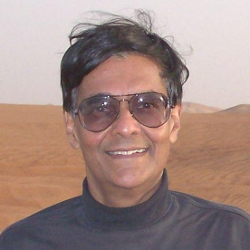As Vice Chairman of the Intergovernmental Panel on Climate Change (IPCC), Professor Mohan Munasinghe an alumnus from the Department, shared the 2007 Nobel Peace Prize with other IPCC colleagues and Al Gore, for their efforts to build up and disseminate greater knowledge about climate change, and to lay the foundations for the measures that are needed to counteract such change.
Professor Munasinghe is the first Sri Lankan to receive this coveted award and he will be representing the IPCC as a shared winner of the Prize at the award ceremony in Stockholm in December.

The IPCC is a UN "Think Tank" consisting of the world's leading experts on climate change. It was created by the World Metorological Organisation (WMO) and United Nations Environment Programme (UNEP) over 20 years ago. Professor Munasinghe has contributed to all four of the authoritative assessments on climate change produced by the IPCC in 1990, 1995, 2001 and 2007.
In its recently released report, the IPCC states that global warming is unequivocal and very likely caused by human activities that have steadily increased atmospheric concentrations of greenhouse gases (especially carbon dioxide) since the industrial revolution. Among the alarming outcomes are increased global average temperatures (around 3°C by 2100), sea level rise (about 0.4 metres by 2100), more severe droughts and floods, and increases in extreme weather events like cyclones and storms. Ironically, while greenhouse gas emissions from rich countries have contributed most to global warming, the poor countries will be hardest hit, and poor groups will be the most vulnerable. Thus, climate change will significantly worsen existing problems like poverty, hunger and disease. More generally, unchecked climate changes will alter and threaten the living conditions of the over 6 billion inhabitants of the planet, who are all stakeholders.
Through the scientific reports it has issued over the past two decades, the dedicated scientists in the IPCC have created an ever-broader informed consensus about the connection between human activities and global warming. Whereas in the 1980s global warming seemed to be merely an interesting hypothesis, the 1990s produced firmer evidence in its support. In the last few years, the connections have become even clearer and the dire consequences still more apparent.
Professor Munasinghe has been in the forefront of the IPCC efforts recognized by the Nobel Prize award, to integrate climate change policies into development strategy, and thereby make development more sustainable. He proposed the Sustainomic Framework at the 1992 Earth Summit in Rio de Janeiro, to practically achieve this goal, based on the sustainable development triangle (with social, economic and environmental dimensions). The methodology has been widely applied worldwide to jointly address climate change and sustainable development, the two pre-eminent issues of the 21st century.
Professor Munasinghe is also Chairman of the Munasinghe Institute for Development (MIND), which has contributed to the work of the IPCC. MIND is a non-profit body which provides scholarships to Sri Lankan students and conducts research and training work worldwide on climate change and sustainable development.
By awarding the Nobel Peace Prize for 2007 to the IPCC Team and Al Gore, the Nobel Prize Committee is seeking to contribute to a sharper focus on the processes and decisions that appear to be necessary to protect the world's future climate, and thereby to reduce the threat to the security of humankind. Prompt action by world leaders and all concerned stakeholders is necessary now, before climate change moves beyond human control.

